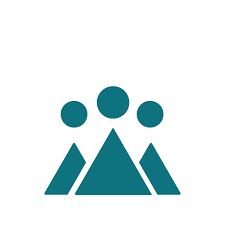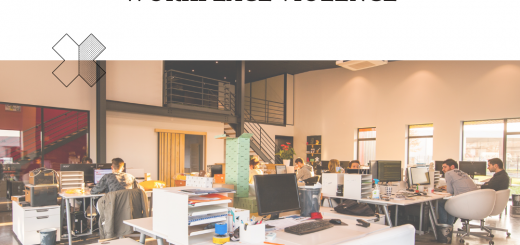Exploring Employment Challenges in the Social Impact Sector
Payal, a talented public policy graduate, works as an Associate in the non-profit sector. She is ambitious and is constantly on the go, exploring opportunities to grow her career. However, with a full-time job and information asymmetry, Payal often feels lost in her path. She sometimes struggles with maintaining a work-life balance as she also looks after her aging parents. The struggle prevents her from exploring new opportunities or looking for higher positions.
Like Payal, many of us when we would have set out to seek employment, have confronted a set of challenges and obstacles that can make the whole process feel neverending. At Arthan, as we interact with several jobseekers, especially women seeking apt job roles, we also field questions regarding the challenges they face – such as searching for job opportunities that meet their requirements.
Arthan’s Women at Work Initiative held its inaugural masterclass titled “Job Search in the Social Sector”.The session which was conducted by Ridhika Bagga, a core member of Arthan’s Talent Acquisition team who is engaged in organizational development and community engagement work at Arthan and moderated by Maathangi Mohan, a core member of the Women at Work Initiative who is involved in organizational effectiveness and gender justice comprehensively delved into various facets of job search process encompassing important aspects such as challenges in job hunting, effective job search strategies, navigating the landscape of the social sector, exploring mindsets and attitudes that influence job searches, and approaches to overcoming the obstacles encountered in the process of looking for jobs.
Navigating the Social Impact Space
To begin with, let us delve into the essence of the social impact space. While we often come across various terms associated with this domain, it is imperative to gain a clear understanding of what precisely constitutes the social impact space and how one can effectively navigate within its intricacies. The landscape of social impact is expansive and diverse, encompassing non-governmental organizations (NGOs), social enterprises, consulting firms dedicated to effecting positive change, foundations committed to driving societal betterment, grant making and impact investments.
SOCIAL ENTERPRISES: Social enterprises are organizations that blend business practices with social and environmental goals. These entities aim to address societal challenges through innovations, while also generating sustainable revenue.
CONSULTING: Consulting firms in the social sector are organizations that offer specialized advisory and strategic services to individuals, nonprofits, government agencies, and businesses that are dedicated to social causes.
FOUNDATIONS: Foundations in the social sector are organizations that provide financial support, resources, and expertise to address various social, cultural, and environmental issues. These entities play a critical role in philanthropy by pooling and distributing funds to nonprofit organizations, projects, and initiatives that aim to create positive societal change and improve the well-being of communities.
IMPACT INVESTMENT: Impact investment in the social sector refers to a financial approach that seeks both positive social or environmental outcomes and financial returns. It involves investing capital with the intention of generating measurable, beneficial impacts on the society, while also achieving a financial profit.
GRANT MAKING: Grantmaking in the social sector is the process of providing financial support or funds to individuals, organizations, projects, or initiatives that are working to address social issues and problems.
Approaches to Job Search :
There are different approaches a job seeker takes while applying for jobs – two of which we would discuss below. The two approaches are – Generalist Approach vs Specialist Approach.
The Generalist approach encompasses a broad spectrum of knowledge with a specialized focus on general management or support functions. In contrast, the Specialist approach emphasizes a deep understanding of a specific subject or niche expertise within a particular domain. When adopting the Generalist approach during the application process, it’s advisable to concentrate on organizations that align with your interests. On the other hand, the Specialist approach involves seeking opportunities where your specialized skills are directly applicable.
Challenges in Job Search:
Gender stereotypes are often a critical variable in women jobseekers finding and acquiring the job roles of their interest. For instance, In a research study conducted by Arthan, it was found out that parameters such as marital status, family planning, clothing play a significant role in detrimentally influencing the recruitment process, more in the cases of women than men. In addition to that, there are various other common obstacles that come in the way of job search for all individuals in the social sector.
CHALLENGES FACED BY WOMEN WHILE LOOKING FOR JOBS :
Women in particular encounter some uncommon challenges when looking for jobs in the social sector. Through the research study conducted by the women at work team at Arthan, it was found out that there is a strong gender bias when it comes to hiring practices in the social sector :
- Marital Status: Marital status plays a pivotal role in hiring practices within the social sector. Women are frequently subjected to questions about their marital status and family planning intentions during interviews, which are generally invasive and irrelevant to their qualifications.
- Maternity Leave: Concerns regarding maternity leave and its potential consequences on job security and career progression can dissuade women from pursuing certain roles. Fear of professional setbacks during and after maternity leave limits career choices and growth.
- Work-Life Balance: Balancing family responsibilities while maintaining professional roles, particularly when women are primary caregivers (e.g., mothers or caretakers for parents), becomes more intricate. These challenges often prevent women from aiming higher and influence their trajectory.
- Networking Challenges: In a predominantly male-dominated sector, women often face difficulties in establishing professional networks and relationships. Their contributions may be undervalued, and their experiences may not be taken as seriously as those of their male counterparts
Working women often encounter a myriad of challenges as they juggle multiple roles and responsibilities. The need to navigate these challenges and sometimes work extra to compensate for them is a reality for many. Balancing career aspirations with family and household duties can be emotionally and physically demanding. Women often face biases and gender-related hurdles in the workplace, which can hinder career progression. This may require them to put in extra effort to prove their competence and worth. Additionally, women may encounter societal expectations and stereotypes that can add pressure to excel both at work and home. Despite these challenges, working women continue to persevere, displaying resilience and determination in their pursuit of personal and professional success.
Addressing these gender-specific challenges in the social sector is crucial for promoting gender equality and creating a more inclusive and diverse workforce. Initiatives like Arthan’s Women at Work play a vital role in raising awareness about these issues and working towards creating a more equitable job environment for everyone, especially individuals who have marginalized identities.
Mindsets and Attitudes
Job hunting and facing rejections can be emotionally taxing, especially for women who often encounter additional gender-related challenges.Through a comprehensive study conducted by Arthan, it has come to light that women often experience burnout due to the overwhelming burden of balancing their professional responsibilities with family and gender roles they undertake. This balancing act can pose significant challenges, adversely affecting both their mental and physical well-being, subsequently impacting their productivity and performance in the workplace. Moreover, this can erode their self-confidence and self-worth concerning their professional achievements. While it’s easier said than done, maintaining a positive outlook remains imperative. Every experience, regardless of its nature, offers valuable lessons that should be embraced. It’s essential to normalize and encourage women to take breaks, seek time off, or even consider professional assistance when the situation becomes overwhelming. Overcoming the unique challenges that women face in the workplace is undoubtedly a formidable task, but with support and courage, the journey can become more manageable and rewarding.
At Arthan, through the Women at Work initiative we aim to walk and work with professionals like Payal who are navigating challenges and barriers in their professional journeys by facilitating forums and frameworks that will help them define their aspirational trajectories, resources they would need to embark on them as well as equip them to seek support from a network of peers and advisors, and persevere as they chart their growth in the sector. Our mission is to establish a supportive ecosystem and foster a community characterized by kindness, unwavering support, and a safe space for women like Payal who grapple with challenges like work-life balance and low self-confidence that hinder their career growth.
You can watch the Masterclass here!


